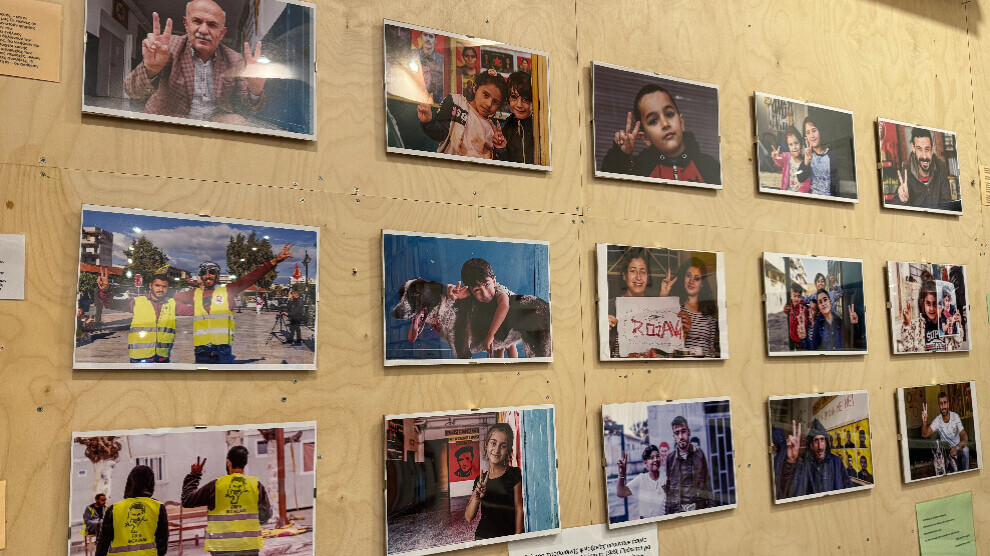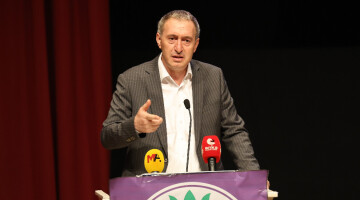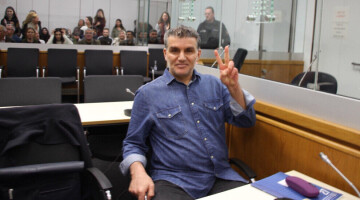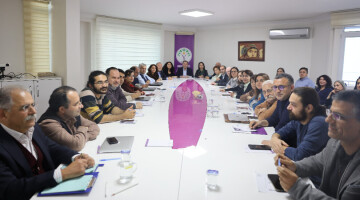The Meteorite bookshop in Athens is showing an exhibition of photos from the Lavrio refugee camp. The photos were taken by the French photographer Jacques Leleu, who supported the camp for years with aid deliveries through the collective Convoi Solidaire. The exhibition includes photos from 2016 until the eviction in summer 2023.
Commenting on the exhibition, Leleu pointed out that nobody voluntarily leaves their country and embarks on an escape into the unknown. In Lavrio, the people lived together despite the pain and poverty they suffered, he noted and stated: "They created a small Kurdistan in which they could speak in their own language and their children could grow up with their own culture. They had hope, they laughed, they danced. And they dreamed of the day of victory, when they could return to their homeland."
Lavrio is a town in the Greek province of Attica, around 60 kilometres south of Athens. It was home to one of the oldest refugee camps in Greece. Built in the 1960s for Cold War refugees from the Soviet Union, in the 1980s it was mainly political refugees from Turkey who had escaped the military coup there. Lavrio was known as a reception centre for Kurdish people seeking protection and was attacked by the Turkish government as a "terrorist training camp". From 2014, an increasing number of Kurdish families from Rojava/northern Syria fleeing attacks by ISIS arrived in the camp. Most recently, they made up the majority of the residents, but Kurds from Bakur (North), Rojhilat (East) and Bashur (South) Kurdistan also lived in the camp.
The camp was run as an official facility with the help of the Greek Red Cross until 2017. When state support was unexpectedly withdrawn from the camp, a kind of self-governing zone was created, financed by donations, including from the Kurdish Red Crescent (Heyva Sor a Kurdistanê). The self-administration of the camp worked according to the principle of democratic autonomy. There were committees for security, cleanliness, health, women, youth and administration.
In July 2023, the camp was forcibly evacuated by a large contingent of Greek police. The eviction took place shortly after a declaration by Greece's new right-wing government to start a new beginning in relations with Turkey. A few days later, a NATO summit was held in Lithuania, where the issue of Sweden's admission, which had been blocked by Turkey, was once again discussed.
Activist Hasan Hüseyin Ebem from the Kurdish Community Centre in Athens is convinced that the evacuation of the self-managed camp was a gesture by the Greek government to the Turkish state. "Lavrio Camp had a historical significance," said Ebem at the exhibition in Athens. Remarking that the camp offered space for a dignified life and was designated as a target by the Erdoğan government, he stated: "In 2023, the camp was evacuated, and our people were left to their fate. The Greek government followed Turkey's policy. In its seventy-year history, the camp has been a refuge for tens of thousands of people. We condemn the eviction. The states with their dirty policies are leaving people to die. The closure of Lavrio Camp is one of the most recent examples of this inhumane behaviour."












